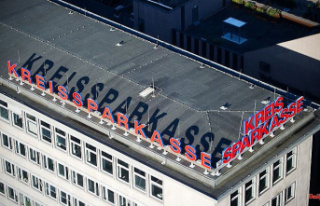In recent months, prices in Germany have risen more than they have in decades. Can we hope that at some point we will have cheaper prices than now?
Be it rolls, electricity or fuel: the cost of living in Germany has risen sharply in recent months. So much so that the poorer sections of the population in particular no longer know how to pay their bills. The question is: Can we hope that prices will eventually return to pre-crisis levels? The economics of Prof. Monika Schnitzer provide answers to urgent questions.
How long do you think prices in Germany will continue to rise at the rate we are currently seeing?
Prof. Monika Schnitzer: We are increasingly seeing that companies are passing the increased energy costs on to their customers. It can therefore be assumed that prices will continue to rise at a similar rate to the current rate into next year. However, unless energy prices continue to rise, price increases should gradually level off over the next year.
What rate of inflation would we have to arrive at in order for us to talk about a healthy level of price increases again?
The origin of the high inflation is caused by the increased import prices for energy, which are making us poorer as a country. However, the current inflation rates are difficult to cope with, especially for the poorer population, whose income is just about enough and who have no savings.
A rapid reduction in inflation to the target level of two percent is therefore desirable, but cannot be forced immediately by interest rate hikes by the European Central Bank. Therefore, there will have to be adjustments to transfer payments and wages as well as government aid measures.
Can we hope that prices will eventually fall back to the levels of the same period last year? Or do we have to live with the fact that prices will continue to rise from this level - albeit more moderately?
If the import prices for energy no longer rise, but actually fall again, there will be price reductions again - if there is enough competitive pressure. However, that is only to be expected in two years' time, when sufficient alternatives are available, particularly for Russian gas supplies.
How much the prices will rise in the meantime will depend on how much the higher energy import costs are passed on to customers and how much wages rise.
About the person: Prof. Monika Schnitzer is a member of the Advisory Council for the assessment of overall economic development, colloquially known as the "economic experts". She holds the Chair for Comparative Economic Research at the Ludwig-Maximilians-University in Munich.












